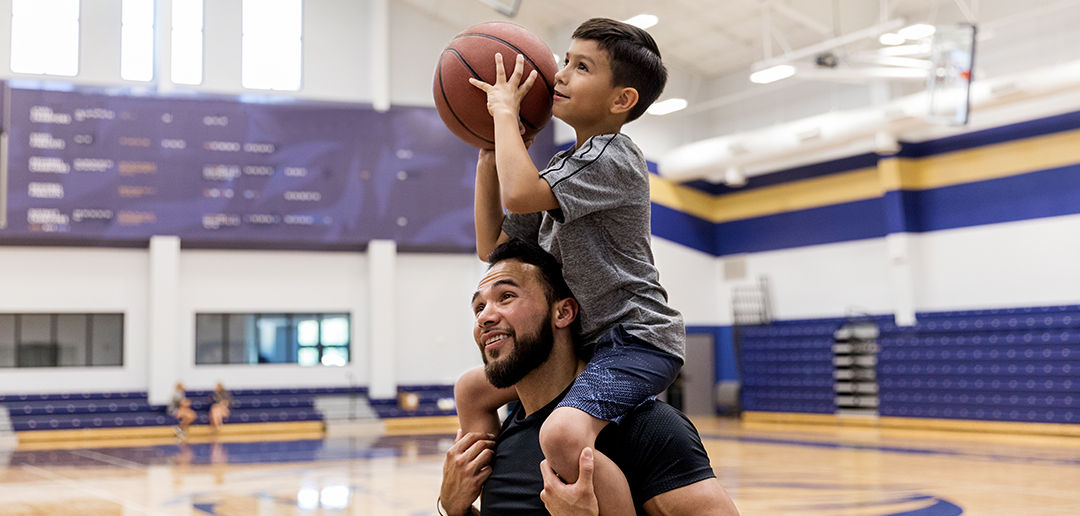Authentic relationships are part of the critical building blocks of effective teams. Great organizations are filled with people who care about the mission, purpose, and people that comprise the group. The process of building great teams starts by cultivating strong relationships (on the court, in the boardroom, and in life).
The strength of a team can be measured by the strength, honesty, and authenticity of the relationships within the group - in other words, the culture of the team. Author Dan Coyle said that, “culture is a set of living relationships working toward a shared goal. It’s not something you are. It’s something you do.” The health of these relationships must be constantly maintained through the habitual investment of relational deposits.
"I want to coach winning character!"
The value of relationships is a principle that cuts across all disciplines and industries. However, the challenge facing many coaches (in particular) is to sustain a culture of relational investment in all areas of their lives. The demands of the coaching profession have the ability to overwhelm the relational responsibilities in other areas of life. Anybody who works in a demanding environment (coaches and non-coaches) must develop the skills needed to manage the tension between investing in relationships both at home and on the job.
Here are three principles of building strong relationships that can be leveraged in any context and with any group of people.
Live with Intention
Time is limited, but energy, focus, and intentionality have no limits. We are all given the same number of hours, minutes, and seconds every single day. Effective leaders should focus less on time management and more on energy management. Living intentionally means being focused and intentional about how, where, and with whom you spend your time.
The most intentional leaders tend to be the most organized and prepared leaders. Intentional leaders control their schedules (to the best of their ability!) and work to not let their schedules control them. They plan ahead to invest time in meaningful relationships and have the discipline to accomplish tasks in advance so they can be fully present. They do their best to carve out meaningful time to take care of their responsibilities. They prepare for busy seasons and understand the rhythms of their year so they can rest, live, and work well.
Practice Inclusivity
A strong relational foundation creates emotional points of connection that make it easier to play as a team. Strong relational ties create a collective buy-in to the central mission and purpose of the team. Wise leaders understand the value of inclusivity in the process of building a strong team. Whether at home with our families or at work with our players, we are all part of many different teams. When those we have the closest relationships with feel included in the decision-making, strategies, and happenings of the team-building process, it creates emotional buy-in.
For coaches with families, this works in two different directions. It means helping your family feel a part of your team, while making your team feel like a part of your family. The more difficult task for coaches is often found in helping their family feel included in the work they do every day. Finding small ways to keep your family engaged with what you do at work will foster a stronger sense of community and relational stability in all directions.
Make the Right Investment
The disciplined pursuit of less is the key to making the types of investment that truly count. Greg McKeown in his book Essentialism talks about the importance of ruthlessly eliminating the non-essential things in our lives. This couldn’t be more true when it comes to building a strong relational foundation with our teams (both at home and at work). Often when we have success, the undisciplined pursuit of more (which usually comes at the expense of our core competencies) will weaken our influence, water-down our relationships, and makes us less effective as leaders. The key to strong relationships is finding the right investments, and then making repeated commitments to those investments over time. You will never regret making relational investments in your team, your family, or in life. Mark Manson put it this way,
“To truly appreciate something, you must confine yourself to it. There’s a certain level of joy and meaning that you reach in life only when you’ve spent decades investing in a single relationship, a single craft, a single career. And you cannot achieve those decades of investment without rejecting the alternatives. The act of choosing a value for yourself requires rejecting alternative values.”
Making the right investment is about finding the right restrictions. Boundaries are not meant to restrict freedom (in the sense of squashing creativity); they are meant to establish the guardrail restrictions that lead to meaningful relationships. Strong culture is narrow in the sense that it limits our behaviors so that we can focus on what matters most. Start by making the choice to build a culture of meaningful relationships today.
Take one more step...
Receive coaching resources in your inbox














